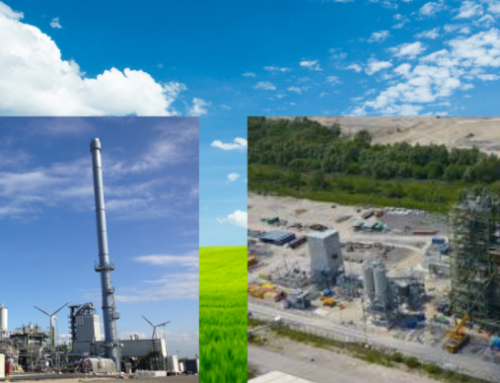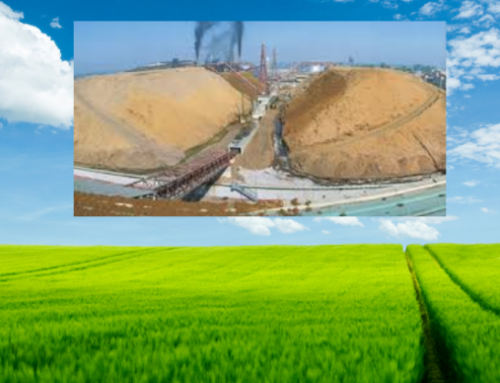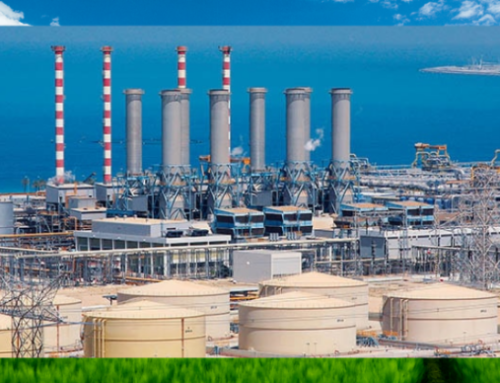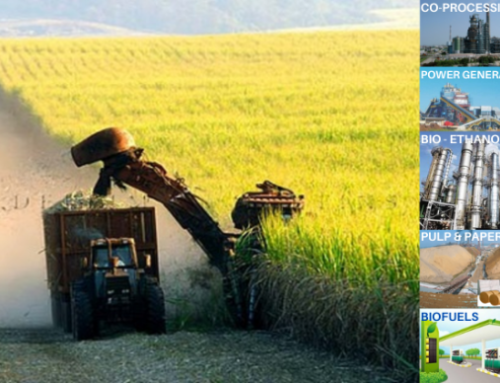B.E.S.T: Brazilian Energy Cane Self-sustainable Technologies is a project developed by Cenerbio and its partners for the sustainable production of SAF (Sustainable Aviation Fuel).
SAF production
In 2010, the EPA created a process for companies to qualify new fuels pathways under the Renewable Fuel Standard (RFS).
A fuel pathway involves a specific combination of feedstock, production process, and fuel type, with an assessment of life-cycle greenhouse gas (GHG) emissions required to determine qualification.
The carbon intensity (CI) of a fuel pathway measures the GHG emissions from production to use, expressed in grams of CO2 equivalent per megajoule (gCO2e/MJ). The CI includes both direct and indirect effects of fuel production and use (from well to wheel).
In the U.S., regulatory entities, such as the EPA, ASTM, DOE and CARB, are familiar with the production and use of Sugarcane and Energy Cane, which are already qualified for various biofuels. For instance, 1G Ethanol (E1G) from Sugarcane is recognized by the EPA as an Advanced Biofuel (D5).
IATA forecasts about USD 140-185 Billion in investment in South America in the next 20 years for world-scale SAF production projects, representing about 12% of 449 Billion Liters of SAF projected production globally by 2050.
Brazil: strategic location for SAF production
Brazil offers significant edaphoclimatic conditions of tropical regions with advantages for agriculture, including a favorable climate that allows multiple harvests per year, fertile soil, vast freshwater resources, and regular rainfall reducing the need for irrigation.


The Brazilian Agricultural Research Corporation (Embrapa), and many other international Biotechnology companies have been crucial in the development of agriculture technologies in the country.
Brazil has a natural position as the most suitable and competitive location for sustainable SAF production, due to:
- the natural competitive advantage of tropical regions for biomass production, as feedstock for biofuels conversion, including SAF;
- the greater forecasted demand for SAF consumption in the northern hemisphere (sub-tropical region) until 2050;
- Brazil is the largest tropical country in the world.
Brazil’s expanding export infrastructure enhances its ability to compete globally, making it a strong foundation for agricultural development, and a proven export platform. It’s estimated that logistics costs for exporting the final SAF would be 70% less than the cost of exporting ethanol for further processing into SAF abroad.
Energy Cane as raw material for SAF
Energy Cane is the designation of a specific group of Sugarcane varieties, optimized for Biofuels and Bioenergy production.
Energy Cane is a non-food, and non-transgenic energy crop, supported by a specific and robust genetic improvement breeding program, that offers unique competitive advantages over other biomass sources.
Energy Cane has a sophisticated biochemical pathway (C4-type photosynthetic metabolism)involving the incorporation of carbon dioxide into organic products at two different stages (Double-Carbon fixation). It is more efficientin waterand energyuse, and tolerant of stress conditions related to climate change, as average temperature increase, associated with rising CO2 levels in the atmosphere and water scarcity.
Energy Cane produces larger volumes of feedstocks such as lignocellulosic biomass (bagasse)and fermentable sugars, and has a higher annual production potential, compared to other crops, including conventional sugarcane.
For SAF production, cane bagasseis included in the Positive list of materialsclassified as residue, byCORSIA “Methodology for Calculating Actual Life Cycle Emissions Values”.
Its similarity to conventional sugarcane allows it to benefit from existing agricultural practices and expertise in Brazil’s sugar-energy sector, resulting in lower production costs, reduced investment and fast agricultural implementation, less required crop area, and continuous annual availability.
This leads to positive impacts on key factors like availability all year long, homogeneity, cost, and sustainability.
B.E.S.T. SAF Project
CENERBIO proposes B.E.S.T. SAF Projectas the best solution, in face of current biofuel production crops and technologies that are unsustainable and inefficient, leading to higher land use and a lower reduction in CI¹.
CENERBIO B.E.S.T. SAF Project is a disruptive concept of advanced and sustainable Energy Crop production, integrating biochemical (Ethanol E1G) and biomass thermo-catalytic technologies for the production of SAF, Ethanol (during ramp-up, Plants 1 and 2) and Bioenergy(heat & power for self-sustaining operation) from Energy Cane.
CENERBIO B.E.S.T. SAF Project shows the best solution in terms of yield, economics and capital de-risking, considering a three-plant project, separated into three phases, the first and second with the production of ethanol (E1G) associated with SAF production using lignocellulosic biomass hydro-pyrolysis (thermo-catalytic process), and the third phase with the implementation of a large scale SAF-ATJ production plant, using ethanol (E1G) from the three phases, and additional SAF produced from hydro-pyrolysis plants.
The preliminary study indicated:
- Payback ≤ 8 years (IRR 19%);
- Fast implementation, higher yield and lower production cost @ ≥10 crops per planting (annual and all-year-long harvest); Self-sustained power & heat, for industrial processing, using existing lignocellulosic biomass;
- Integration of the best available commercial Energy Crop supported by a dedicated breeding program, with the highest yield conversion technologies;
- No competition with food production lands; Integration with local communities by a dedicated program of technology transfer, and long-term purchase agreements with medium & small growers, generating permanent jobs.
A further detailed feasibility study is crucial for investments in advanced renewable fuels projects, which will include the integrated production of SAF for exporting.
Due to the complexity and early-commercial stage of ATJ and hydro-pyrolysis (thermo-catalytic process) involved in the production of SAF from biomass, as well as all the regulatory and certification processes, it is essential to present the fundamentals and specific features of these technologies to investors, including project location and local agriculture performance.
Disclaimer:
The information contained in this presentation is not intended to and does not constitute an offer, solicitation, inducement, invitation or commitment to purchase, subscribe to, provide or sell any securities, service or product or to provide any recommendations on which a party should rely for financial, securities, investment or other advice or to take any decision based on such information.
This information does not purport to contain all of the information that may be required to evaluate all of the factors which would be relevant to a recipient considering entering into any transaction, and any recipient hereof should conduct its own investigation and further analysis. The recipient must conduct its own complete due diligence at its sole responsibility.
Ivo Fouto
ivofouto@cenerbio.com
http://www.cenerbio.com

















Leave A Comment